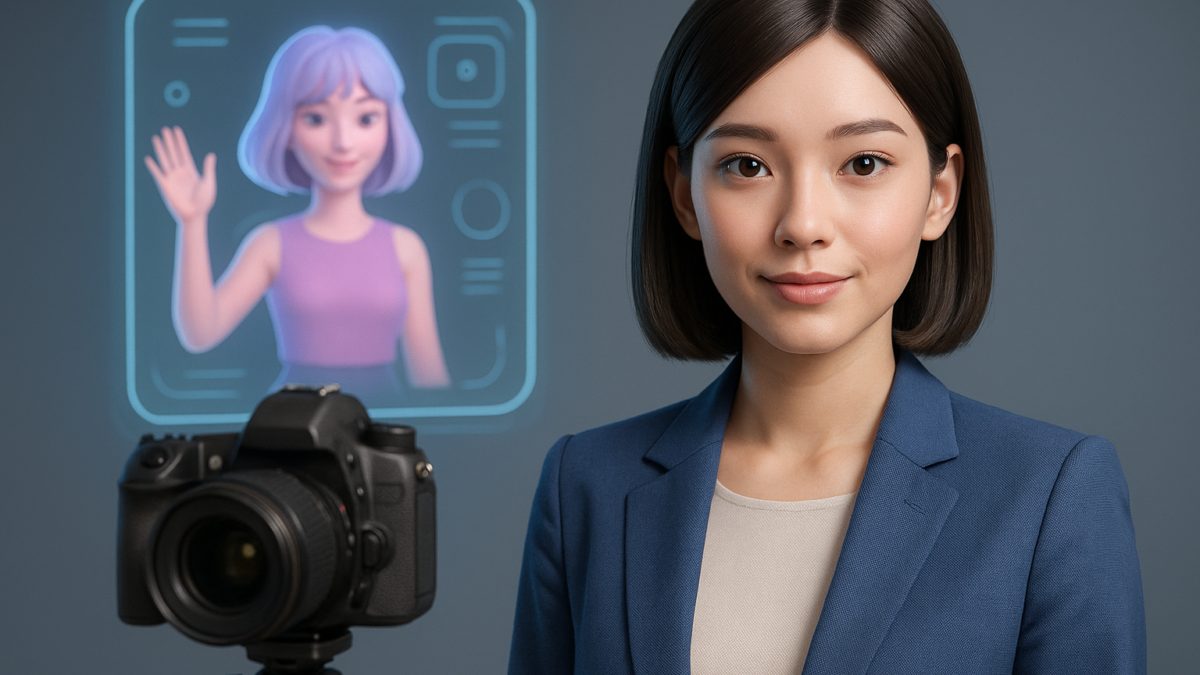The Rise of AI-Powered Influencers: Are Virtual Idols the Future of Marketing?
Table of Contents
The influencer economy has exploded over the past decade, with social media creators shaping consumer choices in beauty, fashion, gaming, and beyond. But in 2025, a new kind of star is taking center stage: AI-powered influencers. These virtual personalities—designed with hyper-realistic visuals, programmed personalities, and machine learning-driven engagement—are redefining how brands connect with audiences.
The big question: are AI influencers a passing trend, or are they the future of marketing?
What Are AI-Powered Influencers?
AI-powered influencers are digital characters created using artificial intelligence, 3D modeling, and machine learning. Unlike traditional influencers, they don’t age, need breaks, or risk public scandals. They exist purely online and are managed by creative teams or AI systems that design their content, responses, and collaborations.
Some AI influencers are designed to look realistic, while others embrace futuristic or artistic aesthetics. They post photos, create videos, engage in live chats, and even respond to fan comments—often making them indistinguishable from human creators.
Examples of AI Influencers in 2025
Several AI influencers have already captured global attention:
- Lil Miquela: A virtual model and activist with millions of followers on Instagram.
- Shudu Gram: Dubbed the “world’s first digital supermodel,” she collaborates with luxury fashion brands.
- Imma: A Japanese AI influencer who blends digital art with real-world settings.
- Custom Brand Influencers: Companies are increasingly creating their own proprietary AI influencers to represent their brands 24/7.
These AI-driven personalities are no longer experimental—they’re shaping mainstream campaigns across industries.
Why Brands Are Turning to AI Influencers
1. Control and Consistency
Unlike human influencers, AI personalities are fully controlled. Brands can dictate messaging, tone, and visuals without worrying about PR scandals, inconsistent behavior, or personal controversies.
2. Cost Efficiency
While the initial investment in creating an AI influencer can be high, the long-term cost is lower compared to ongoing influencer fees, travel expenses, and contract negotiations.
3. 24/7 Engagement
AI influencers can engage audiences around the clock—responding to comments, posting globally, and adapting content instantly based on audience feedback.
4. Global Appeal
Language barriers are minimized. AI influencers can instantly translate their content and adapt their style for local markets, expanding brand reach.
Consumer Reactions to AI Influencers
Reactions are mixed but evolving:
- Curiosity and Novelty: Many followers engage with AI influencers out of fascination with the technology.
- Skepticism: Some question authenticity—can a “virtual person” build real trust with consumers?
- Acceptance: Younger audiences, especially Gen Z and Gen Alpha, are more comfortable interacting with AI-driven personalities, seeing them as part of digital culture.
A growing number of consumers don’t mind whether their favorite influencer is human or AI—as long as the content is entertaining and authentic to the brand.
Challenges and Ethical Considerations
While promising, AI influencers present new challenges:
- Authenticity: Followers value transparency. If AI influencers are not clearly disclosed as virtual, it risks backlash.
- Data Privacy: Personalized interactions rely on massive data collection, raising privacy concerns.
- Cultural Sensitivity: Without careful oversight, AI influencers may unintentionally promote stereotypes or offensive content.
- Human Impact: As virtual idols grow, questions arise about job displacement for human creators.
Brands must balance innovation with ethical responsibility to ensure AI influencers build trust, not suspicion.
The Future of Influencer Marketing
Looking ahead, AI influencers will likely co-exist with human creators rather than replace them. Hybrid campaigns where virtual idols collaborate with real influencers—are already emerging, combining novelty with authenticity.
We may also see:
- Interactive AI Influencers: Powered by conversational AI, capable of real-time, personalized fan interactions.
- Brand-Owned Digital Ambassadors: Companies creating permanent AI “faces” for their brand.
- Immersive Campaigns: AI influencers integrated into metaverse experiences, VR events, and AR shopping.
In short, AI influencers are not just a trend—they represent the next evolution of marketing, blending creativity, technology, and consumer engagement.
Conclusion
AI-powered influencers are transforming how brands approach digital marketing. They offer control, scalability, and endless creativity, but also spark debates around authenticity and ethics. For businesses willing to experiment responsibly, virtual idols represent a powerful way to engage digital-native audiences and future-proof influencer strategies.
See Also: What Is Whitepaper Lead Generation? A Complete Guide for 2025





